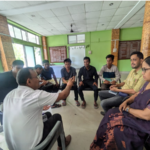Deepa K. Basfore looks into the righteousness and wrongfulness of the faceoff between the ‘so-called’ upholders of the moral values and believers of the freedom of expression
Thousands of young girls and boys fearlessly kissing each other on the streets of Kerala was headlines in all the news channels and newspapers of the country.
The news was on November 2, 2014, and it was the beginning of a clear conflict between the freedom of expression and the preservation of Indian culture. Demanding freedom of expression, the young Indians were demonstrating against moral policing by kissing and hugging each other on the streets of God’s own country – Kerala. Even Gods were watching them. The protestors most of them below 30, neither cared about the social customs nor the fact that their actions were telecast on national channels. The initiator of the protest was a Facebook page ‘Kiss of Love’ which invited them to join the protest. The page has more than 1,20,000 likes and the thousand youth protestors is itself a proof for the rejection of moral policing.
These youths are native of a country, where sometimes people are beaten up for celebrating Valentine’s Day or for following the so called Western culture. So, it’s obvious that young people kissing each other on the streets would obviously be not tolerated. The protestors continued kissing and hugging each other even after getting arrested by police and beaten up by various groups on violating the norms of moral policing.
Apart from the moral policing groups and the police, the protestors were also criticized by most of the people of the country for demonstrating love publicly. Supporting these moral police groups, M. Harkhali, who is in his late 60’s says, “We should not tolerate this kind of shows by the youngsters. Who would like their daughters to openly kiss someone in public? Kissing someone or showing love to someone should be done privately not publicly. Every parent should teach their child about Indian customs, tradition and culture.”
“What is Indian Culture? Indian culture allows people to pee in public and restricts kissing,” questions Harshieta who is a degree student in Guwahati and supports the protest ‘Kiss of Love’. She adds, “If Indian culture restricts lovers to meet, why do we worship Lord Krishna and Radha, why do we celebrate Krishna’s rashleela? Young people are forced to come out to the street because we are not allowed to love each other privately.
Various groups beat up and kill lovers who spend time together and hold hands in parks, then why don’t they demolish Khajuraho? If they are against us, they should also oppose lord Krishna and Radha, Khajuraho and any symbol which is related to love in India.”
“Let’s forget once that what we have seen in the historical monuments of Khajuraho, Konark or Madan Kamdev in Assam. The people who are stopping us to meet in parks, etc. and love each other, did not they do so when they were of our age?” questions Roshan, a degree student from Bangalore.
Roshan adds, “If lovers meet in parks or other places, they are beaten up or sometimes even killed. Then, the only option left is to come out in the open and love each other. We are educated and well informed, we know kissing and hugging is not a crime under Indian Penal Code and as per the judgment given by Delhi High Court and Supreme Court, no criminal proceedings can be initiated against those who publicly express their love”.
The arguments of the young generation cannot be rejected who have studied the history of India in their textbooks. So, does it imply that we should accept their actions and allow them kissing and hugging on streets. Neither the judiciary nor the history of India can stop them from doing so. Keeping alive the Indian values and preserving the old age traditions and norms is possible or not, can only be answered by the present and future generation of India. Thus, defying any action of these youths out rightly could be a blunder. Instead of restraining them from doing something allegedly wrong, it would be wise if they are better understood and an atmosphere is facilitated where in they could affect a positive change in the society.







